A meat shortage is playing out due to coronavirus. Time will show how bad it gets, but if you want to ensure that both you and your family don’t have to resort to a vegan diet, there are things you can do.
by Aden Tate, homesteader and author of The Faithful Prepper
I don’t know about you, but I enjoy eating meat. The thought of not being able to do so doesn’t sound like a lot of fun to me. Yet here we are, seeing news article after news article of a meat shortage:
- Costco limits meat sales.
- Meat shortages hit Wendy’s.
- Meat shortage hits more than just supermarkets.
- Meat shortage at restaurants and grocery stores.
I’m incredibly grateful for my farm that helps to provide me with a consistent source of meat. But that’s low-hanging fruit.
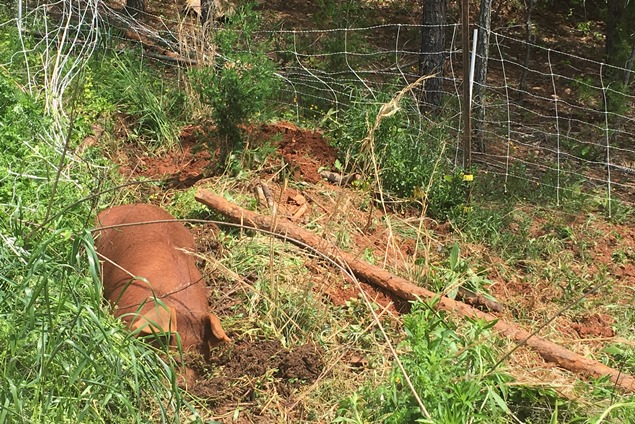
When somebody asks how you prepare for a meat shortage, and you answer with stocking up your freezers now and to raise your own livestock, that seems like a copout. How can we get down to the nitty-gritty?
To begin with, any problem with the national meat supply will result in three things:
- You will have an incredibly hard time finding meat products on your grocery store shelves.
- You will see grocers rationing their own products, as we see now and as we’ve seen with hand sanitizer and toilet paper due to COVID-19.
- You would see drastic price increases for all meat products. The scarcity of any item makes the price increase, and meat is no exception to the rules there.
Protein is still a vital part of the human diet, however, and though it is possible to get enough dietary protein solely from plant sources, I would argue that not only is it much more enjoyable to get your protein needs from meat, but you are able to get other nutrients (such as iron and some B complex vitamins) that you will have a much harder time of getting enough of from plant products.
Related article: Finding Freedom Through Food Independence
Yes, I understand that it is possible to get all of the nutrients that you need from a vegetarian diet, but I also understand that not very many people want to live that way.
What can we do for meat during a shortage?
The first thing would be to look for alternative sources of meat. Hunting and fishing of course are going to be the stock answers here, and should by no means be cast to the backburner, as just a single deer can provide enough protein for family for quite some time. But are there other options where one can buy meat products other than a grocery store that the general public may not know about?
The Local Farmer
The first would be to buy direct from your local farmer. Joel Salatin, quite possibly the most famous farmer on the planet, runs Polyface Farms in such a manner. Customers can literally drive right up to the farm and purchase rabbit, beef, or chicken cuts from his farm-based freezers. And Joel Salatin isn’t alone in doing this. Though they are often not marketed very well, local farmers offering locally raised and farm-fresh cuts of meat often surround communities.
I began researching my area a few months ago, and have found three local farms that sell chicken, one that sells rabbit, one that sells pigs, and dozens that sell beef. But unless you look, you would never know. It wasn’t until I really started to delve into my local farm scene that I began to discover just what there was around me.
“But where do I even start with my search for local farmers?”
I’ve found three great sources to find local farmers.
The first would be your local health food store. A lot of farmers like to stock health food store freezers with their products in order to broaden their customer base. It was at my local health food store that I not only found a refrigerator filled with the chicken eggs of one farm, but I found a freezer stocked with pork from another farm, and duck eggs in yet another fridge from yet another farm!
There was a table full of business cards and pamphlets from other farms that weren’t represented in any of the store aisles, but still wanted people to know that they sold direct. I would have never found these sources of animal protein had it not been for that trip.
Secondly, your local farmer’s market is going to not only be a great place to actually buy meat, but it’s going to be a great place to learn about other farms in the area as well. Farmers know their competition. A Saturday morning trip to your local farmer’s market could easily result in your discovering not only present farms, but also farms that the booths deem to be their competition. Now, I most certainly wouldn’t go up to some guy selling eggs and ask him where else I could buy eggs as well, but the egg man may be a good person to ask whether he knows where you could find rabbit meat for sale. Similarly, the beef man may be able to direct you to a farm to buy mutton. Farmer’s markets are a stream of information.
I haven’t been able to find any CSAs that include meat products in my area, but that doesn’t mean they don’t exist. For those who don’t know, CSA stands for “community supported agriculture.” It’s basically a food subscription service from a local farm. Farmers sell memberships to their CSA in order to ensure that they have a sufficient customer base for the crops that they intend to raise and sell. A farmer’s market may be an excellent place to find a CSA in your area that would include meat products.
The last place that I’ve managed to find great information on local farms is from the local farm stores in my area. Most farm stores that I’ve been in have some form of community bulletin board where farmers can post fliers about what livestock they have for sale, what equipment they want to buy, and the like. I always find SEVERAL fliers on some form of meat for sale when I peruse these bulletin boards. And one of the cool things about this, is that one of my local farm stores actually serves as a freezer location for a local sheep ranch.
Anytime I get a hankering for mutton, I can go to my local farm store, peruse the freezer, and get virtually any cut of meat that I would like. And that’s something else you’ll discover as you begin this search: local farms most likely have freezer locations all over your community in locations that you never would’ve guessed.
I’ve heard of freezer locations being placed in real estate offices, local stores, and a host of other places that you would not typically expect to be able to buy chicken eggs or frozen meat. You might be surprised with what you find when you really start to research this.
If all else fails, start spreading the word among local friends that you are looking for locally raised meat. As a result of doing so, I found a friend of mine that raised a herd of cattle every year, and split the cost of doing so with friends who would get half of the beef when the time came for butchering. I found friends with kids in the FFA who were doing the same. They needed funds to raise their FFA calf to butcher weight, and those who were willing to contribute to the pooled fund received a freezer full of meat when butchering time came.
“Ok, but what about raising your own meat? I’ve got a little bit of land, and I’m starting to think about it.”
That’s no problem either. I farm on the side, and I would recommend starting off with either chickens or rabbits. I have experience with pigs and goats as well, but the start up cost and learning curve there can both be quite a pain in the butt.
Raising Your Own Chickens
Chickens are relatively cheap, however. You can typically find chickens for sale on your local Facebook farm page, fliers at your local farm store, from local farmers, at flea markets (at least in my area), livestock auctions, Craigslist, or even in mail order catalogs.
I wouldn’t pay more than $15 for a full grown hen, and wouldn’t pay more than $3 per chick. Oftentimes via local postings from the above mentioned sites you can find chickens for free as well. In the unlikely event that you can’t find chickens anywhere around you, a mail order catalog will have to do.
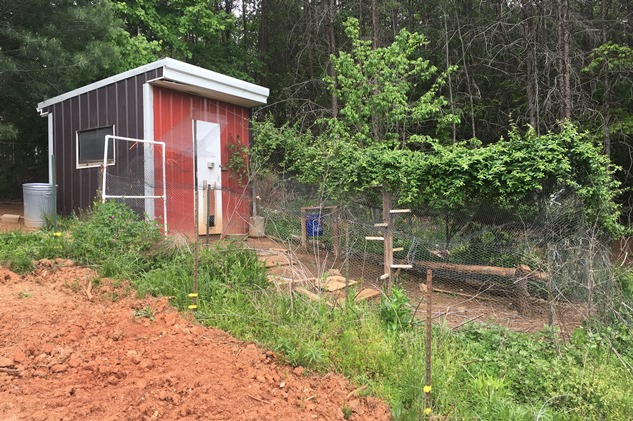
I enjoy perusing Cackle Hatchery’s catalog every spring, but in my experience, Tractor Supply seems to have the best price on chicks. Most mail order catalogs will have a pretty hefty shipping fee. I did the math just the other day while considering ordering chicks, and found that the company I was pricing wanted a $30 shipping and handling fee for $40 worth of chicks!
That just didn’t seem worth it to me. If I’m going to be paying $70 for chicks, I better at least be getting 20 of them. This particular company would’ve only given me around 12 chicks for that price. When I was researching at my local Tractor Supply, however, not only did there not appear to be a shipping and handling fee (perhaps that’s different in your locale), but the price per chick was about a quarter cheaper as well.
As far as coops go, you can easily find hundreds of great examples online. I built my main one from sheet metal. But I have a chicken tractor that I use for my Cornish Cross chickens (the meat variety you’ll find in store) that I absolutely love, and that I built for all of $100, if that.
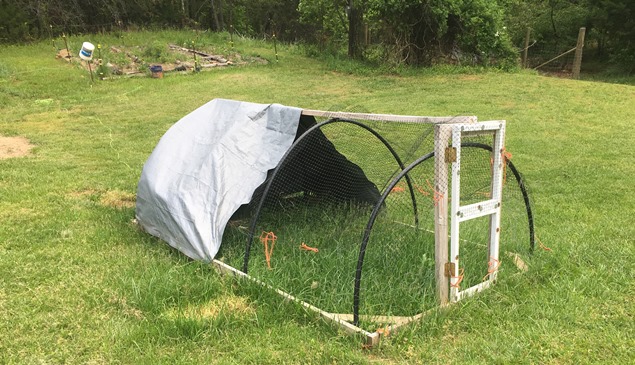
A chicken tractor is essentially a portable coop. I move the coop every day or two exactly one tractor length so that the chickens have fresh grass and bugs to eat. My yard is fertilized without being burnt in the process, my feed costs go down, my chickens are healthier, and it just makes me happy as well (not to mention the chickens).
The only changes I would make if I decided to make my tractor over again would be to: A) make it taller, so that I can walk around in it, and B) I would cut the base 2×4 in half first, effectively halving the weight of the chicken tractor, making it even easier to move.
Raising Rabbits
Rabbits are the next farm animal on my list to start working with. I’m waiting till I butcher my pig to buy my rabbits. My plan here is to copy Joel Salatin’s “Raken” design. The Raken is where Salatin raises all of his chickens and rabbits together during the winter. Buy Joel Salatin’s books here.
The rabbits are in hutches up off of the floor, while the chickens run around on the ground. The hay and such that falls through the rabbits’ hutches to the ground serves as a source of interest to the chickens, and the amount of meat that is able to be produced in a set amount of square footage increases. It’s a form of vertical gardening, if you will.
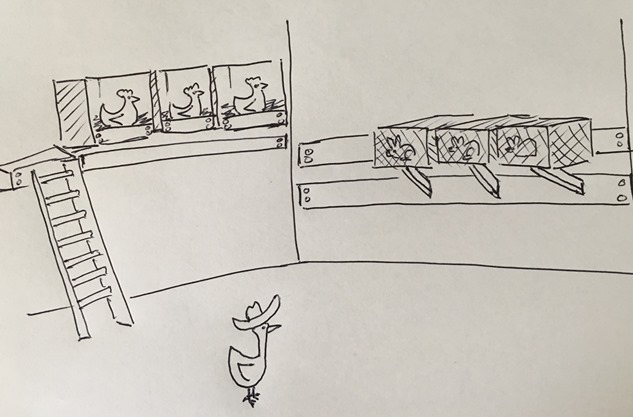
I have a rather large chicken coop. My plan is to put three or four rabbit hutches in it, attached to the walls about chest height. The rabbits would be kept safe from the elements within the shelter of the coop, the chickens would be able to eat the rabbits’ waste greenery, and I would exponentially increase the amount of meat that I would get from that one area.
Though rabbits seem to be a bit harder to find (at least in my area), I’ve already found three different farms in my area that raise meat rabbits, and are willing to sell them live as well. My plan is to start with Flemish Giants, as these are absolutely gigantic bunnies. I’m buying one buck and two does as well, and letting them multiply from there. That should provide plenty of fresh rabbit meat over the course of the year.
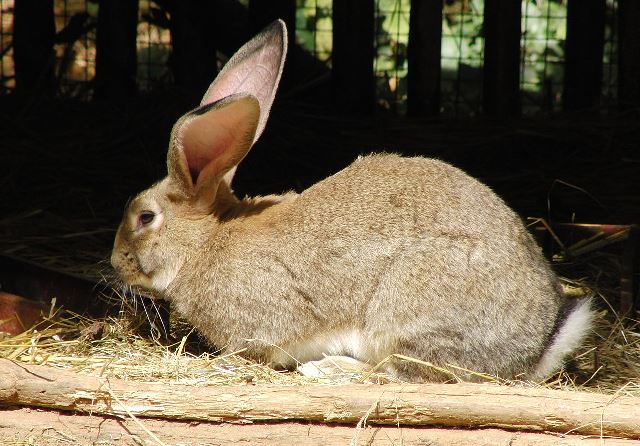
Ducks, turkeys, fish – they’re all animals that would work as well. Really, I think if you’re interested in raising a particular animal, then go for it. Your interest alone will help you to make it work. I haven’t worked with them, nor have plans to work with them anytime in the near future. Everyone I’ve talked to who has raised ducks has complained about the mess, turkeys seem to have a hard time staying alive, and raising fish without a pond is a mystery to me (people do it in 50 gallon drums).
Wrapping it Up
Whether it be coronavirus, or something else entirely, a meat shortage is most certainly not an impossibility at some point in the future. Whether it be bankruptcy, some new type of animal/human virus, contamination, a strike, or who knows what else, a meat shortage IS a potentiality. But by following the above advice, you can help to ensure that your family doesn’t have to resort to a plant-based lifestyle. Because honestly, who wants to be a vegetarian?